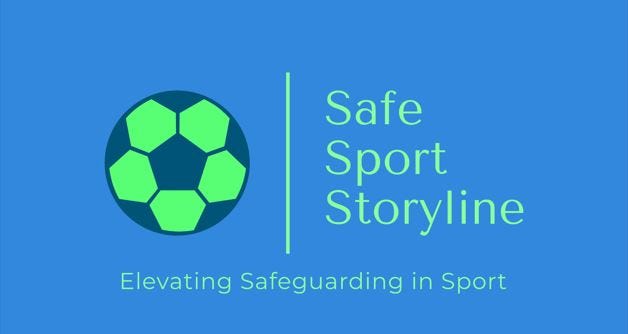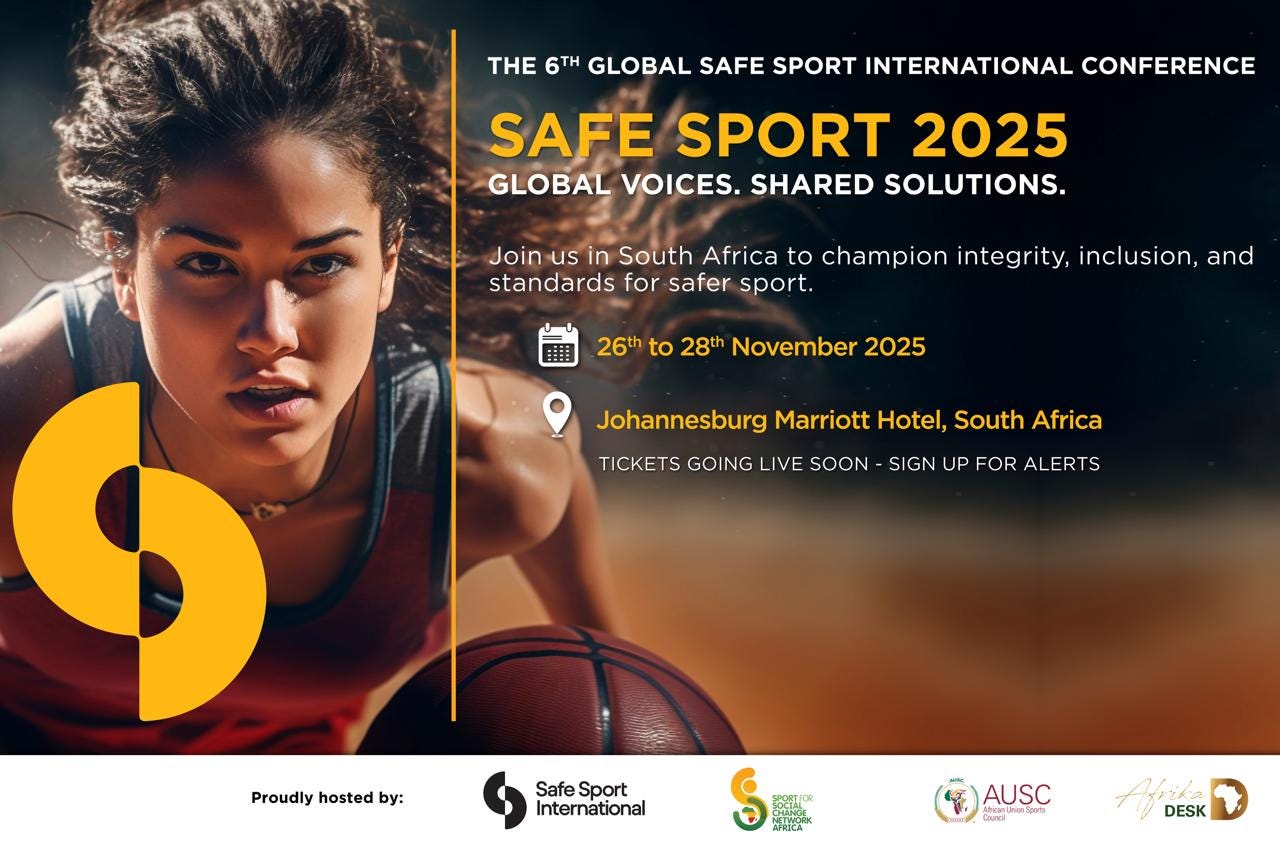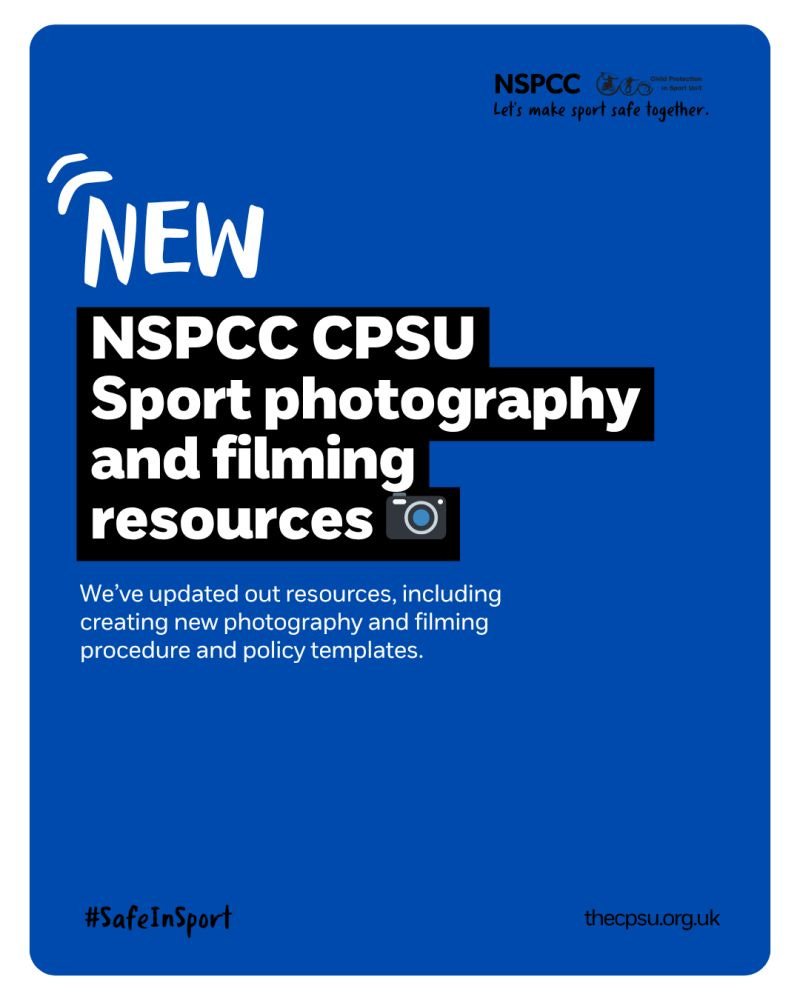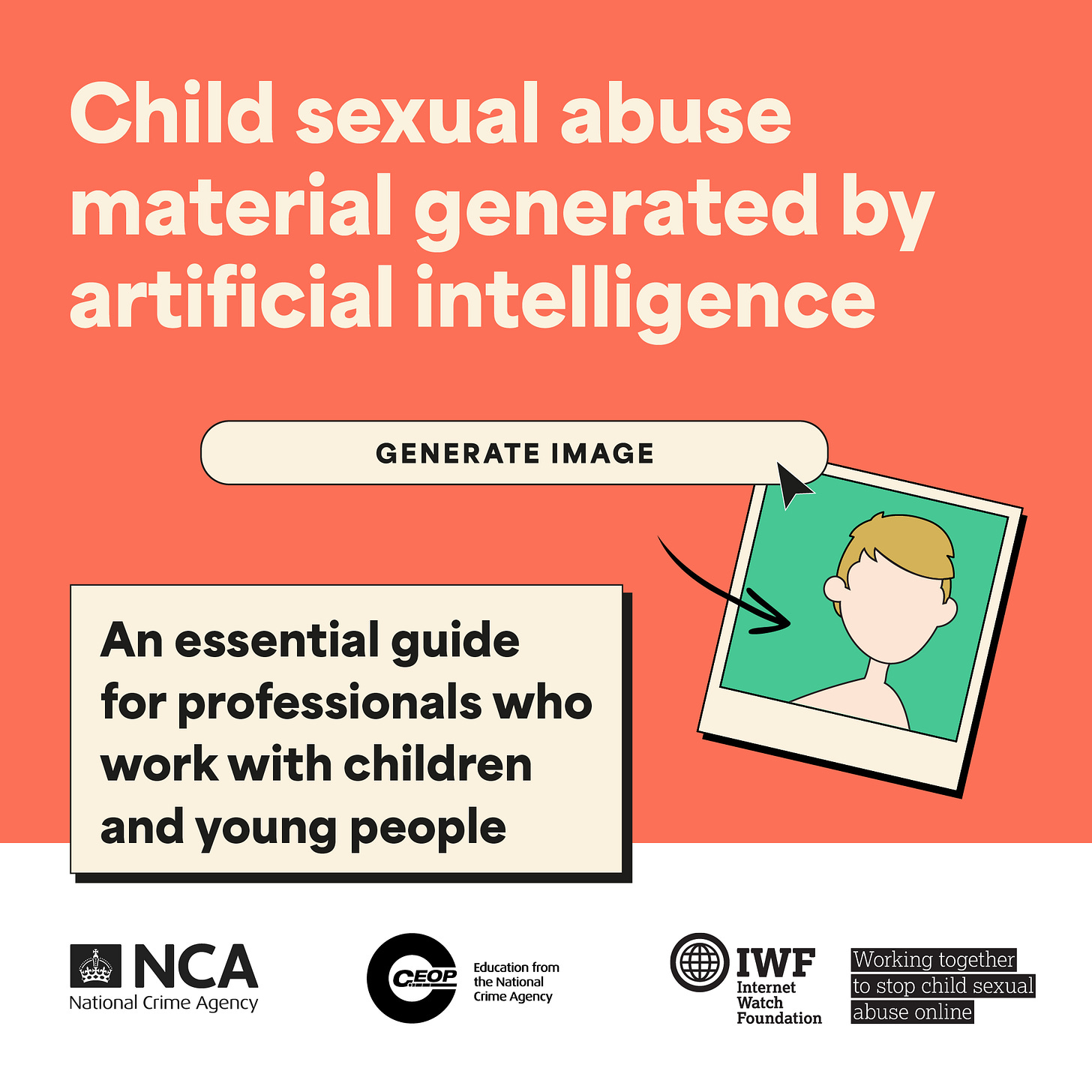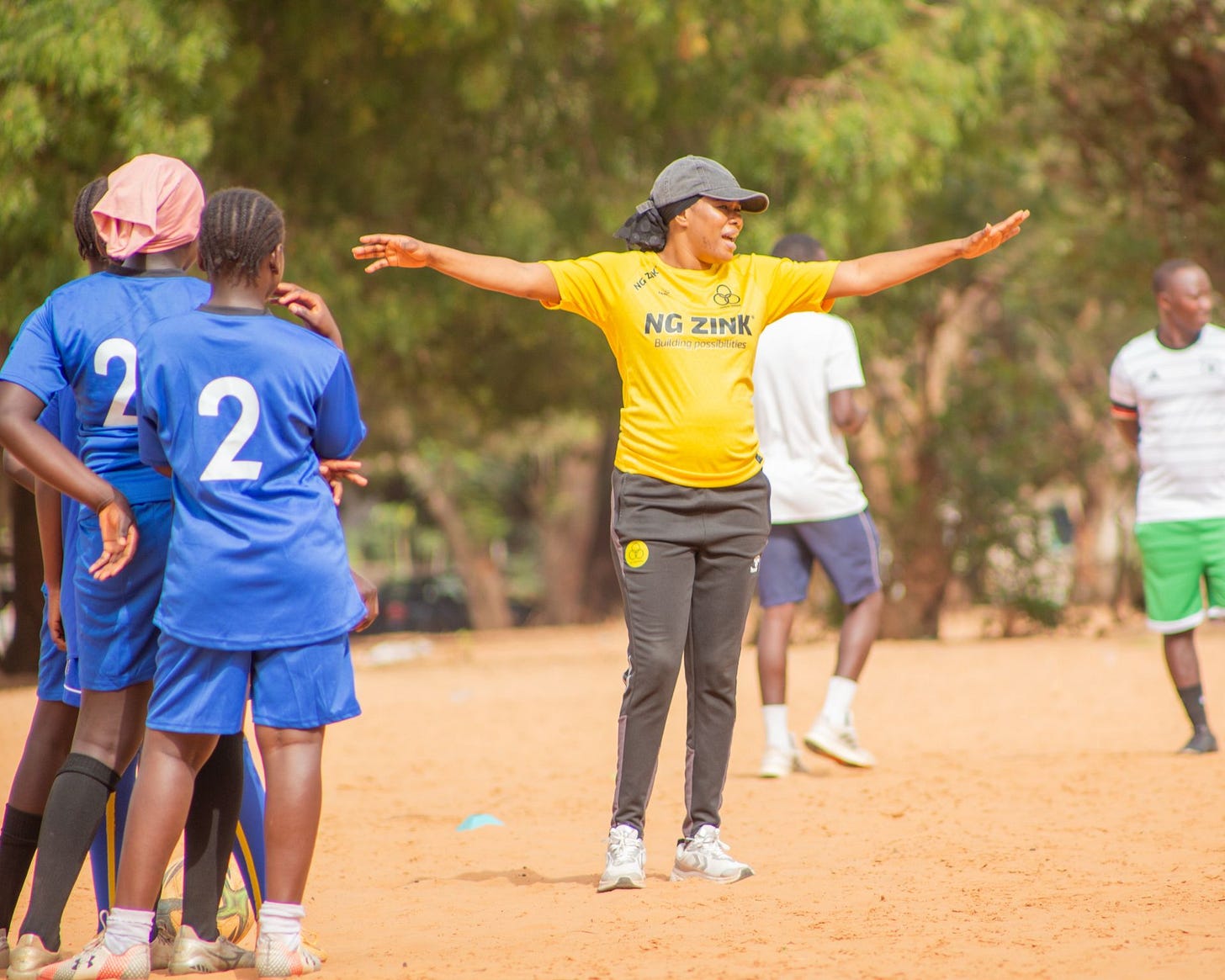Safe Sport Storyline #25
IOC Monitoring Framework for Safeguarding in International Federations; Safe Sport needs Numbers; Cause for Celebration or a Concern; plus Opportunities, Events, Resources and News.
IOC Monitoring Framework for Safeguarding in International Sports Federations
In last week’s Safe Sport Storyline, I reported on the IOC’s first ever environmental and social responsibility report, titled “Human Rights Progress Report 2021-2024”. The report included reference to a Safeguarding Needs Assessments of International Sports Federations (ISFs). To measure the comprehensiveness of ISFs safeguarding measures, indicators were developed, and published in the British Journal of Sports Medicine.
I was keen to learn more about the indicators used by the IOC Safe Sport Unit to assess the comprehensiveness of safeguarding measures in International Federations, as detailed in the British Journal of Sports Medicine article “Safeguarding policies and practices in International Federations: on the right track?”
The monitoring framework consists of 12 safeguarding indicators that measure ISFs progress in safeguarding was developed to assess key areas such as policy, education, reporting and well-being support. Application of the monitoring framework revealed scores that ranged widely—from a high of 19 to a low of 0 and an average of 11.
The indicators used in the framework are:
Safeguarding officer - Does the sport organisation have a trained safeguarding
officer appointed?
Safeguarding policy - Does the sport organisation have a safeguarding strategy or
policy in place?
Safeguarding policy implementation status - Is the safeguarding policy implemented?
Safeguarding education - Does the sport organisation provide safeguarding education to at least one target group?
Reporting mechanism - Does the sport organisation have a reporting mechanism for safeguarding concerns?
Number of reporting channels* - Does the sport organisation reporting mechanism offer more than one reporting channel (eg, phone, email, web form,
chat)?
Anonymous reporting* - Does the reporting mechanism allow anonymous reporting?
Reporting on behalf of others* - Does the reporting mechanism allow reporting on behalf of others?
Case support to national level* - Does the sport organisation provide case support to the national member federations?
Number of past-year outside competition cases received - Did the sport organisation receive more than one reported concern in the past year?
Victim well-being support - Does the sport organisation provide well-being support to affected persons?
National safeguarding policies/leads data - Does the sport organisation have mapping data on National Federations’ safeguarding policies and leads?
Those indicators marked with an asterisk score 1 point and those without an asterisk score 2 points producing a score from 0-20 by which ISFs can be rated.
Safe Sport needs Numbers
by Njane Ndungu, Building Soweto Sports Initiative, Nairobi, Kenya; Masters In Sports Ethics and Integrity
One of the most compelling arguments for an institutional and societal approach to safeguarding is that the presence of a safeguarding officer is never enough to tackle the issues comprehensively.
Take the quote below as an example:
"Children will communicate with the adults they know and trust the most, not necessarily those in specific safeguarding roles, and it’s therefore vital that all professionals are able to have that initial conversation." - Centre of expertise on child sexual abuse
In reflecting on how best to strengthen safeguarding strategies at Soweto Sports Initiative, I realized I had a blind spot I think many grassroots programs struggle with: the monopoly of power at the top. There is a tendency to want to be in control of the many moving parts of the program, the coaching standards, attendance, academic progress, program logistics etc. Often this is to avoid costly mistakes by parties who don't share the vision.
As a safe sport coordinator, I have an elevated sense of responsibility. It is my job to ensure all the kids and youth participating under Soweto Sports Initiative enjoy sport under a healthy and safe environment. Creating a safeguarding policy, upskilling myself and coaches Ali Otieno Rose Mshilla Joseph Odera Berine Okoth are important steps. Even with our best efforts, we miss a lot. With the goal of achieving accelerated and collective progress,
What would we do differently?
Building a safe sport culture requires a concerted and intentional effort. It is an everyday exercise embedded in training sessions. Weekly life skill talks would feature accessible knowledge bits about safety of body, mind and soul. Involving and strengthening conversations with parents around issues we would need support with beyond the courts. Curating special activities with the youngest (and separately the girl child in mind). Allowing frequent athlete-led sessions to build confidence and encourage creativity in handling issues missed by coaches and rarely captured by research and feedback! feedback! feedback!
In addressing threats to Individuals and Peers: If everyone knows, can identify, can speak freely and feels comfortable the issues are tackled, then the goal towards a safe Soweto would be well on course.
Umoja ni Nguvu (Unity is Strength)
Cause for Celebration or a Concern
Independent Online, popularly known as IOL, is a news website based in South Africa that serves the online versions of a number of South African newspapers. Last Sunday they ran the following headline:
“Chelsea signs 13-year-old South African Camden Schaper for record R17 million fee”
The transfer of Camden Cesc Schaper, a 13-year-old South African footballer, from Blackburn Rovers to Chelsea’s academy has raised questions about the portrayal of such moves and the realistic opportunities for young African players. The case highlights the complexities of FIFA regulations, family relocation, and the risks posed by misleading agents.
FIFA transfer rules and family relocation: Camden and his brother, Astin, could join English academies only because their family moved to the UK for non-football reasons, complying with FIFA's rule that international transfers are generally allowed only for players over 18, with limited exceptions. Most African players lack such options and must wait until they are 18 to play professionally abroad.
Misleading promises and risks: The media attention on Camden’s move may unintentionally encourage false hope among young African players, especially as fake agents exploit such stories by offering costly but undeliverable trials and contracts overseas.
Clarifications on contracts and fees: Joining a Premier League academy does not equate to signing a professional contract, which can only occur at age 17 or 18 depending on the player's origin. Additionally, the reported £700,000 fee is a compensation payment between clubs, not a signing fee paid to the player. Only a small percentage of academy players reach the professional level.
You can read the IOL story here and decide for yourself if this is a cause for celebration or whether we should be concerned that such stories contribute to the threat posed by fake agents and to minors being trafficked through football.
OPPORTUNITY
Request for Proposal for Safeguarding Consultant; Safeguarding support for survivor delegates to the G20 Summit
The Brave Movement and Together for Girls are leading global advocacy and campaign efforts to elevate ending violence against children (EVAC) and digital safety for children on the agenda for the 2025 G20 Summit hosted in South Africa. Multiple in-person and virtual campaign activations will be held in the lead-up to the G20 Summit, including a ‘Safe Digital Futures’ roundtable, communications campaign, and an advocacy workshop in September involving survivor leaders of childhood sexual violence (CSV).
The Brave Movement will be supporting a delegation – publicly disclosed survivors of CSV who are members of the movement – to attend the G20 Summit. This includes the Social Good Summit from 18-20 November and the G20 Summit on 22-23 November. The sensitive nature of this work – particularly where survivor advocates are involved – requires dedicated safeguarding support and a framework to ensure participant well-being, mitigate risk, and uphold the movement’s commitment to trauma-informed practice.
This role will ensure safeguarding is integrated into all G20 campaign and advocacy activities, with a special focus on survivor involvement, safe storytelling, and consent management.
The role is flexible/remote, with required travel to South Africa for key in-person events or may suit someone already in South Africa.
Interested candidates should submit a proposal with their project approach, proposed budget, and CV highlighting relevant experience by Friday 18th July 2025.
The role will run from the 28 July 2025 - 12 December 2025
Apply by Friday 18th July 2025 here.
EVENTS
Pre- Registration for 6th Global Safe Sport Conference 2025, Johannesburg, South Africa, suggest tickets will sell out.
The latest pre-registration statistics suggest the 6th Global Safe Sport Conference 2025 in Johannesburg, South Africa, November 26-28th is likely to be a sell out event.
There have already been 348 pre-registrations and 439 ticket requests from an amazing 62 countries. Do not miss out, pre-register here.
RESOURCES
NSPCC CPSU Photography and Filming Guidance (New)
Sharing photos and videos in sport can inspire, celebrate and connect; but it must be done safely and responsibly. Whether it’s for celebrating achievements, promoting your club or live streaming an event; safeguarding still applies.
The NSPCC CPSU has updated their photography and filming guidance to help you get it right. From consent to storage, live streaming to changing rooms, the NSPCC CPSU have got you covered!
Their new and refreshed resources include:
✅ what you need to know about photography and filming
✅ policies, procedures and consent
✅ taking, using and sharing images safely
✅ guidance about live streaming and storing content
✅ advice about filming in sensitive spaces like changing rooms
You can access these resources here.
Safeguarding in Sport: Rethinking Legal Approaches and the Case for Global Standards
Listen to a panel at the Sports Resolutions 2025 Conference discuss rethinking legal approaches to safeguarding cases.
IOC Safeguarding Officer, Tawanda Sithole, Zimbabwe Olympic Committee, discusses Safeguarding in Sport
Below is the first of four parts of an interview with IOC qualified Safeguarding Officer, Mr Tawanda Sithole from the Zimbabwe Olympic Committee, discussing Safeguarding in Sport. You can find the other three parts on the YouTube page.
Understanding & Responding to AI-generated child sexual abuse material
The rapid evolution of Artificial Intelligence (AI) brings numerous benefits, but also poses significant risks, particularly concerning the creation and sharing of child sexual abuse material (CSAM), also referred to as AI-CSAM.
This comprehensive guide, developed by the UK’s National Crime Agency in collaboration with the Internet Watch Foundation (IWF) provides essential information for all professionals working with children and young people.
Download this free resource here.
NEWS
Ghanaian Footballer Thomas Partey charged with rape
Former Arsenal footballer Thomas Partey has been charged with five counts of rape and one count of sexual assault in the United Kingdom. The offences are reported to have taken place between 2021-2022, the Metropolitan Police said.
The charges involve three women, with two counts of rape relating to one woman, three counts of rape in connection to a second woman and one count of sexual assault linked to a third woman.
The Ghanaian international denies the charges and "welcomes the opportunity to finally clear his name", his lawyer said.
Read more here.
South African maths teacher and rugby coach, Iain Wares
Broadcaster Nicky Campbell and fellow ex-pupils of paedophile maths teacher and rugby coach Iain Wares are demanding he is finally extradited from South Africa to face justice as he celebrates his 86th birthday – still a free man.
Read the Daily Record article here.
Read the IOL South Africa article here.
TAFISA Girls Positive and Safe Coaching Pathway Project
The Girls Positive and Safe Coaching Pathway Project, is a powerful initiative funded by TAFISA and implemented by the National Olympic Committee of Sierra Leone and the Commonwealth Games Federation.
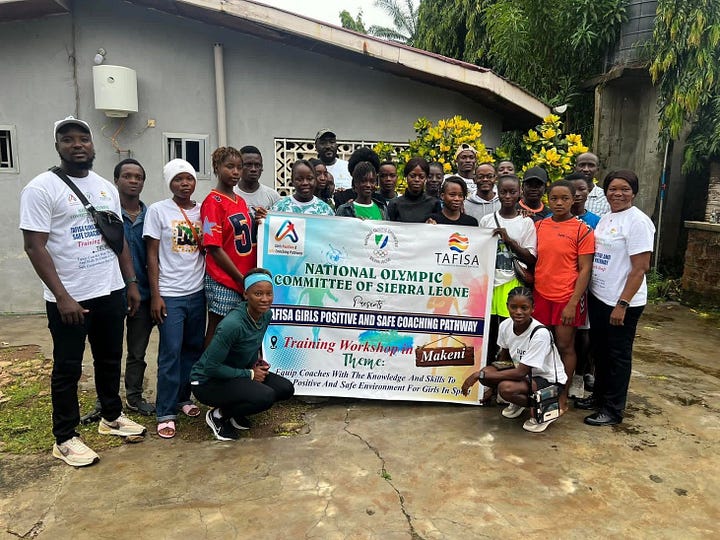
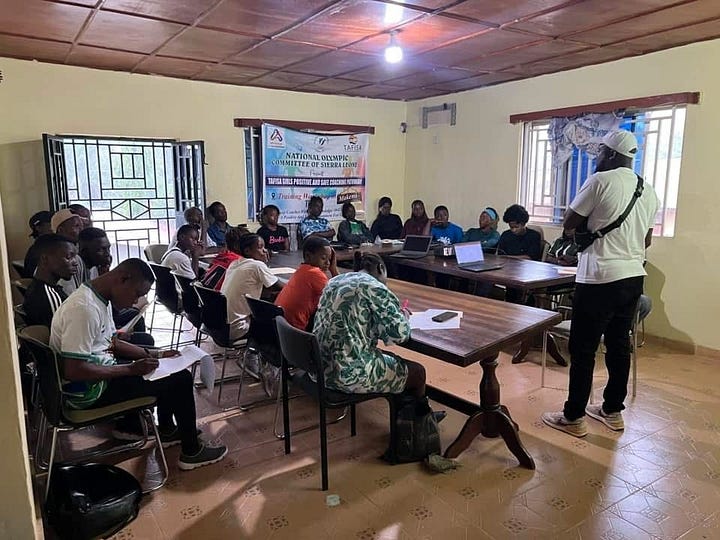
The goal of this project was to create a safe and supportive environment where girls in sports can feel respected, confident, and included.
South African Olympian Creates World Sailing Online Safeguarding Course
Gillian Saunders a 3 x South African Olympic Triathlete (London 2012, Rio 2016 & Tokyo 2020), Lawyer, and Sport Integrity Specialist has created an online safeguarding course for World Sailing.
The World Sailing Academy has launched a new, online learning platform and Gillian has created an 'Introduction to Safeguarding’ Course that is now live, with more modules to come later. It's free to sign up & a certificate is awarded on completion of the course. There are also a range of other courses to take on the platform.
Access World Sailing’s Introduction to Safeguarding in Sport here.
From Teen Sensation to Guardian of Gambian Women’s Football
The world first took notice of a fierce young Gambian footballer with a commanding left foot during the 2012 FIFA U-17 Women’s World Cup in Azerbaijan. Sainey S. M’Boge, then known as Sainey Sissohore, was the vice captain of The Gambia national team and scorer of a historic goal against France.
Perhaps her most meaningful recognition came when she was appointed as The Gambia’s first official FIFA Guardian, a role dedicated to safeguarding players and ensuring ethical, inclusive environments in football.
Read Sainey S. M’Boge’s story here.
Coaches Across Continent Child Safeguarding Training
As part of Coaches Across Continents’ commitment to building a Purposeful Play Culture, Satellite Hub Manager David Mulo recently led Child Safeguarding training with Mathare Coaches Forum in Kenya.

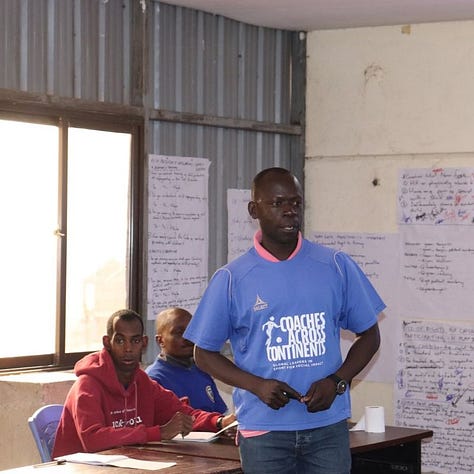
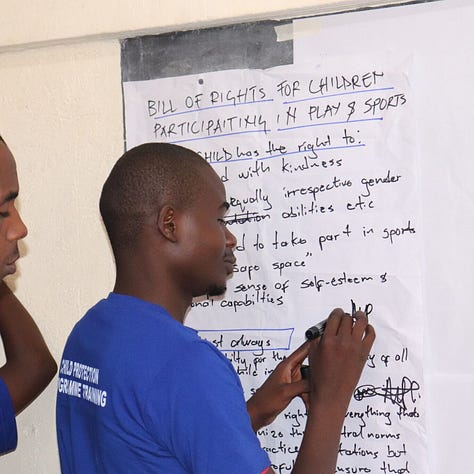
Supported by two Community Impact Coaches, this on-field Coach Education Program built the capacity of 25 local coaches, who are now creating safer environments for over 1,000 young people through Purposeful Play.
Interestingly the coaches asked more questions during this session than any other, revealing how deeply needed these conversations are. Many shared that this was the first time they truly understood how to protect themselves and the children they coach.
Find out more about Coaches across Continents here.
How Sport for Good programs can create safer spaces for LGBTQIA+ communities
Sport has the power to transform lives. We know this is a bold statement, but research from the World Health Organisation and UNICEF, and others shows that sport—beyond its physical benefits—can significantly enhance mental health, improve focus in school, teach valuable skills for the professional world, and much more. Given all these positive effects, it’s distressing that not all communities have equal access to sport.
Read this story from the adidas Foundation here





